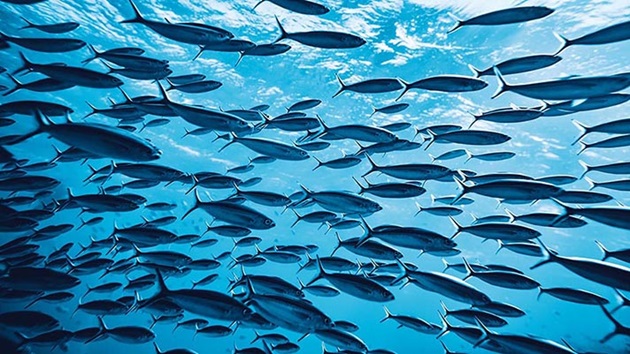Voices from across the globe call for international action to protect precious marine resources
A powerful new documentary released today highlights the stark reality of the impact of climate change on the fishing industry, and the previously underrecognized role of sustainable seafood in climate policy.
“Fishing for solutions – the climate catastrophe: the time for action is now”, is a Farelight Productions creation, commissioned by the Marine Stewardship Council (MSC) - the not-for-profit responsible for the world’s largest sustainable seafood certification programme.
As well as providing first-hand accounts of the impact of climate change on fishers across the globe, the film contains a powerful rallying call to policy makers to tackle the causes of climate change, and agree adaptive, resilient solutions for managing shared fishery resources in the face of profound climate driven shifts in ocean ecosystems.
Fish accounts for about 17 percent of animal protein consumed by the global population and provides employment for almost 60 million people (1). Concerningly, hazards presented by climate change pose a major challenge to the businesses, economies and communities that rely on fishing as a source of income and nutrition (2).
Sustainable fishing has the potential to make fishing operations more resilient to climate change. Many of the key components of sustainable fisheries management also set fisheries up to be more adaptable to change (3). They also have the potential to help reduce carbon emissions by increasing the efficiency with which fish are caught (4). Although individual fisheries have an important role to play in implementing sustainable practices, international cooperation is vital to ensure shared stocks are managed in way that ensures their long-term sustainability.
Dr Rohan Currey, Chief Science & Standards Officer at the Marine Stewardship Council said: “Climate change is here, it’s real, and it’s impacting our oceans and marine life. The way that we manage fisheries has for so long assumed that the world is static, that’s no longer the case. The world is changing. We can’t keep doing what we have been doing before if we want to ensure there are oceans teaming with life for future generations.
“Sustainable management of fisheries is part of the solution, however it isn’t enough on its own. Fish don’t follow national boundaries and therefore international cooperation is required. Governments urgently need to set-aside short term self-interest and agree resilient, adaptive management solutions which safeguard our fish stocks and those who rely on them. The time for talking is over, the time for action is now.”
Artemio Rodriguez Ornela, Sea Urchin Fisher in Mexico speaks in the film about how increased water temperature has impacted the health and density of the sea urchin stock in his fishery. He adds – “If climate change were to end the sea urchin fishery, it would be a catastrophe. Governments need to listen to and analyse different positions so that management plans and official regulations are realistic and are not fixed, so they can be modified in the face of new findings.”
David Carter, CEO of Austral fisheries, the first seafood business in the world to be certified as Carbon Neutral, says in the film: “For fishers, climate change is something we live with practically daily. We are seeing first-hand the changes that are taking place in our oceans. It’s just impossible for us just to be watching this and not want to do something about it. We choose to offset all of our emissions through nature-based solutions, but the real game needs to be around reducing our reliance on fossil fuels, and findings ways to use other than crushed up dinosaurs to run our boats.”
“Fishing for solutions – the climate catastrophe: the time for action is now” is available to stream for free at: Fishing for Solutions – the Climate Catastrophe: The Time for Action is Now - YouTube.
ENDS
About the documentary
“Fishing for solutions – the climate catastrophe: the time for action is now” is a Farelight Productions creation, commission by the Marine Stewardship Council with a run time of 16 minutes. It is available to view on YouTube. The film was commissioned to raise awareness of the often over looked impact that climate change is having on the fishing industry. By bringing the experiences of fishers to public attention the aim of the film is to increase collaboration to safeguard our oceans. It was produced independently by Farelight Productions, with editorial input from the MSC.
References
(2) Tigchelaar et al: Compound climate risks threaten aquatic food system benefits
(3) msc.org: What is sustainable fishing.
(3) Gephart et al: Environmental performance of blue foods.


